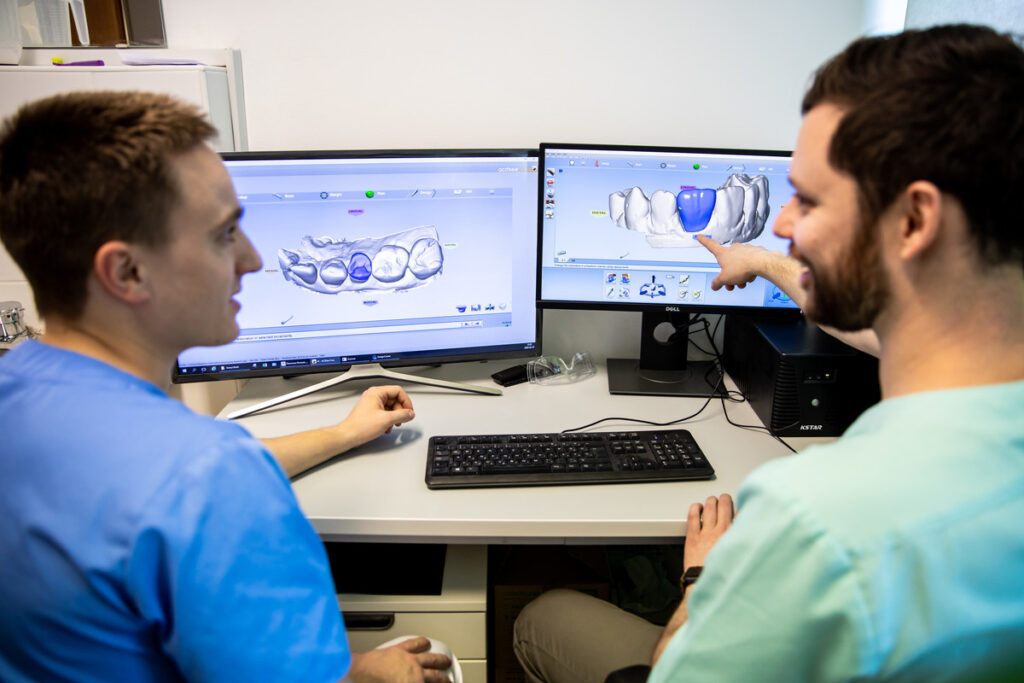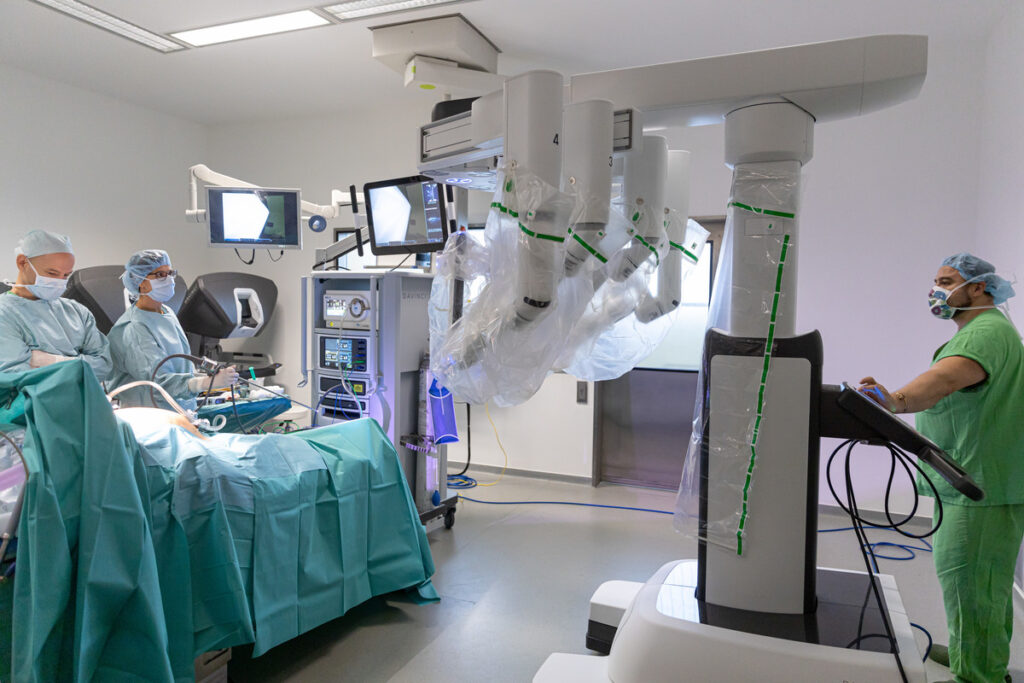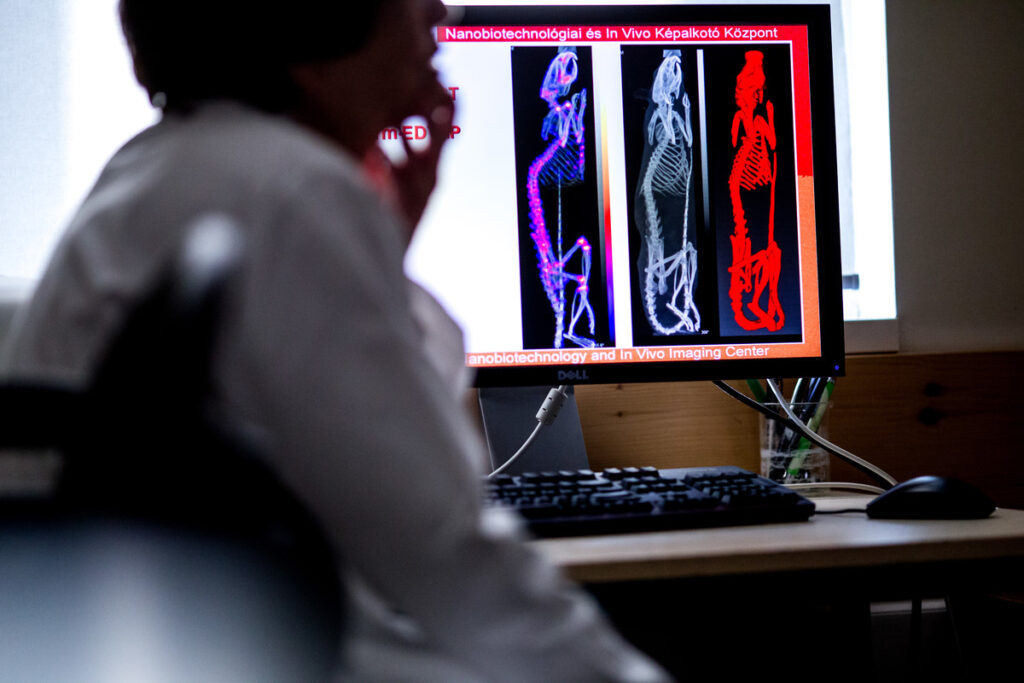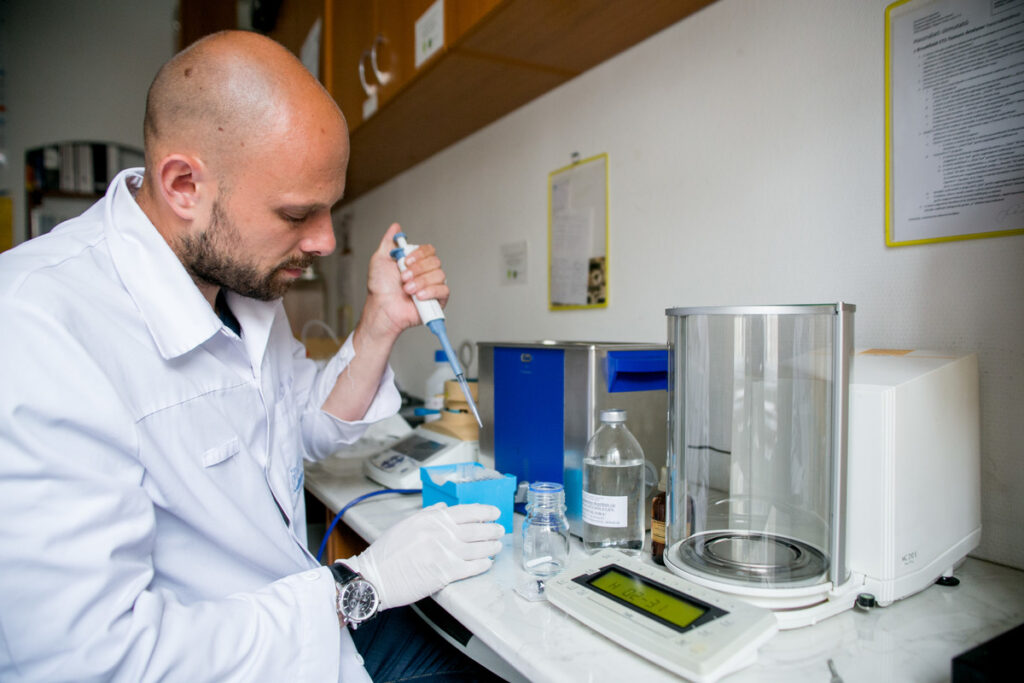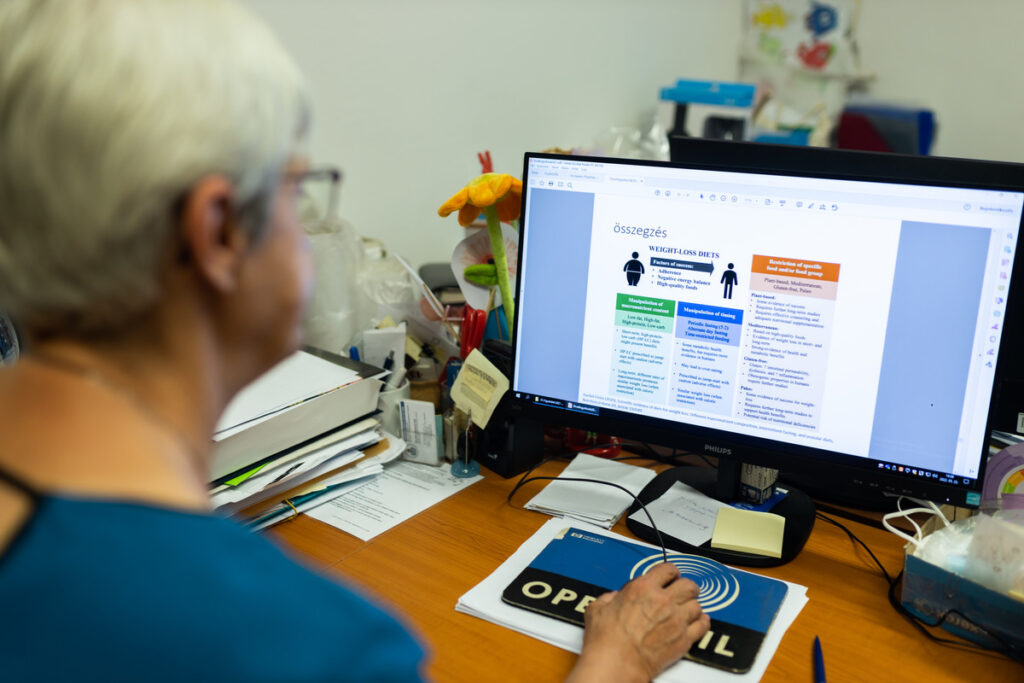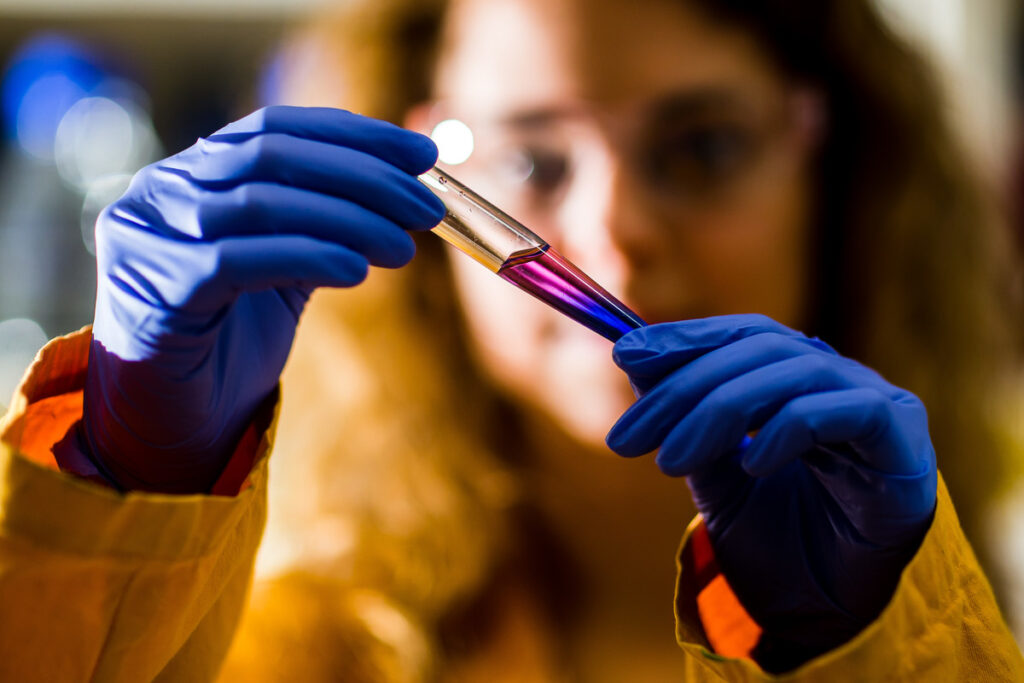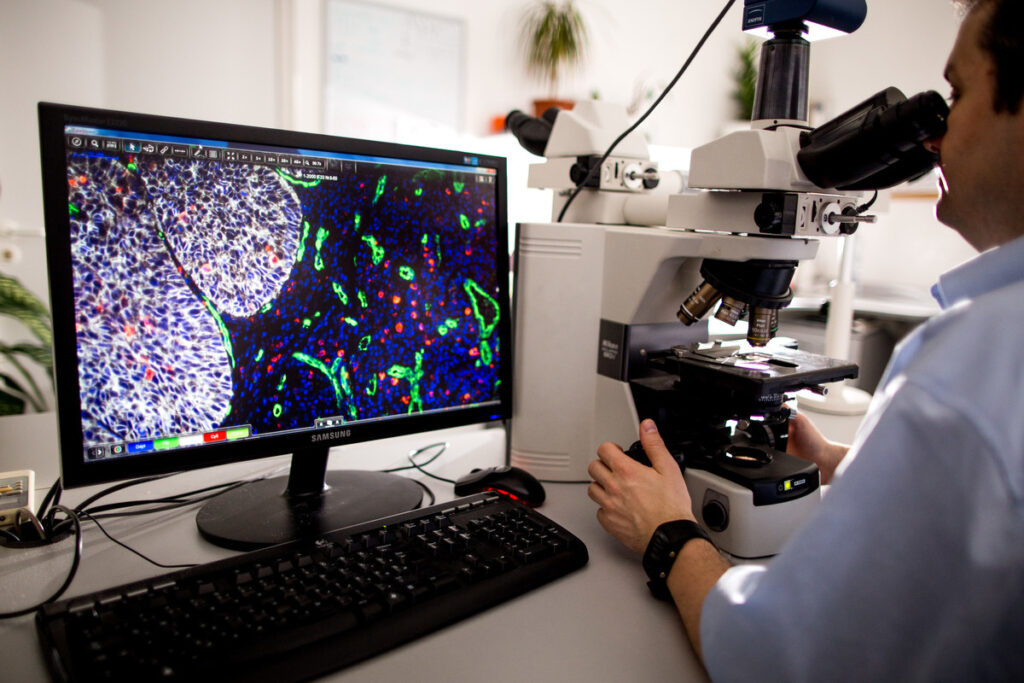 The aim of the Doctoral (PhD) Program is to provide research competences that enable the candidates to do research work, to form independent judgement concerning scientific questions, and to actively participate in the public life of the scientific community. The PhD degree is a prerequisite of a professional career and is a welcome plus for those applying for ambitious management positions in the health care system or in companies doing research, development and innovation. Doctoral studies can be state-funded (only EU citizens are entitled) or self-funded (discounts and fee reductions are available).
The aim of the Doctoral (PhD) Program is to provide research competences that enable the candidates to do research work, to form independent judgement concerning scientific questions, and to actively participate in the public life of the scientific community. The PhD degree is a prerequisite of a professional career and is a welcome plus for those applying for ambitious management positions in the health care system or in companies doing research, development and innovation. Doctoral studies can be state-funded (only EU citizens are entitled) or self-funded (discounts and fee reductions are available).
Application and admission
The Doctoral College of Semmelweis University announces admissions for scholarship and self-funded studies, as well as for participation in the doctoral program as an individual degree holder in the Divisions of the Doctoral College. You can read the exact details of the application method, deadline and admission requirements on the information pages of the doctoral divisions (see below).
- The semester starts on 1. September / 1. February (cross-semester) – untrained students may take their complex exam after the beginning of the semester.
- The entrance exam interviews are organized in June / in January (cross-semester) by the Divisions.
- The result of the entrance exam will be sent to the candidates till the end of July / January.
APPLY ONLINE
Forms of Doctoral training:
Conventional, Individual (“Untrained”) PhD Program
The Individual, advanced (“Untrained”) PhD Program is recommended for students with significant scientific experience and achievements. The complete duration of the training is 1-4 semesters for research and preparing the dissertation.
The Individual PhD Program is for those whose research, done outside the framework of a Doctoral School (e.g. work done abroad or in a research institution independent of universities) meets the requirements of awarding the PhD degree. Following a successful oral entrance examination, they immediately sit for the complex examination, and directly enter the Research and Dissertation Phase without going through the Educational and Research Phase and without taking courses. They subsequently receive their PhD degree through the same procedure as the Conventional PhD Program, except for having to meet a 50% higher publication requirement.
Parallel graduate and PhD program (“MD-PhD program”)
Medical, dental and pharmacy students achieving outstanding results during their studies in frame of the Students’ Scientific Association (TDK) can apply for the program in the last two years of their graduate studies under the guidance of their future supervisor.
They can be entitled to PhD state-grant (only EU citizens) or can enroll as fee-paying students.
They have to meet 150% IF requirements ( compering with non- MD-PhD students) to receive their PhD degree.
MD-PhD students will have parallelly graduate and PhD student status, as well.
To obtain the complex PhD exam, at least one accepted publication is required, which can be fulfilled with an original scientific article classified as a Q1 category journal article according to the MTMT classification, either as the first author or co-author.
Conventional, Regular (“Trained”) PhD Program
Regular (“Trained”) PhD Program is recommended for students with no or moderate scientific experience. The training can be entered after a successful entrance exam. The complete duration of the training is 5-8 semesters (4 semesters for training and research phase, 1-4 semesters for research and preparing the dissertation).
The Training and Research Phase includes completion of research-related educational courses (16 credits altogether), and research work under the guidance of a supervisor.
After the 4th semester the students sit for a complex exam to give account of the scientific knowledge gained and the research results achieved. After a successful exam they enter the second, Research and Dissertation Phase in order to complete the research started in the first phase, to publish the results, and to prepare and submit their doctoral dissertation after a successful debate at the host institution. This is followed by public defence of the dissertation and, after a successful defence, awarding the PhD degree by the Doctoral Council.
Prerequisites of the PhD degree are knowledge of a foreign language necessary for scientific activity (usually English), and fulfilment of the predetermined publication requirements (usually publication of 2 original papers in journals of high standing measured by their impact factor). The maximum duration of the Research and Dissertation Phase is 4 semesters, but in case of earlier completion of the above requirements the doctoral dissertation can be submitted at an earlier time.
 Scholarship program of the Hungarian Government
Scholarship program of the Hungarian Government
Thanks to the Hungarian Government’s scholarship program (Stipendium Hungaricum scholarship) there is a special financing form available. The program is based on bilateral educational cooperation agreements. Apart from the tuition-free education, the Program provides monthly stipend, medical insurance and housing allowance for the scholarship holders from the partner countries. Read more →

